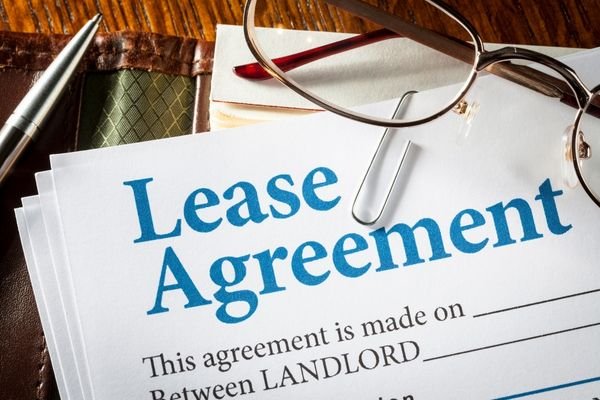Commercial Property Development
At Nash & Co Solicitors, we make it our priority to understand the objectives behind your commercial property development project. This allows us to identify any potential impediments or risks that may arise in achieving them. Our team will collaborate with you to assess potential risks from historic uses, address any title issues, advise on the enforceability of land rights and covenants, and ensure regulatory compliance to facilitate a seamless redevelopment process from start to finish.
Our team of legal property experts is equipped to provide tailored advice to meet the unique needs of property developers, landowners seeking to sell a development opportunity, and investors or occupiers looking to have a bespoke building built for them. We take the time to provide clients with tailored legal guidance ensuring that each client achieves the best possible outcomes.
arrow_back Back to Commercial Property
Our Commercial Property Development experience is key
Our team of commercial property development lawyers are experts in representing developers at every stage of the development process. This includes purchasing land on a conditional basis, securing pre-lettings with occupiers, overseeing the construction of various types of commercial properties such as offices, warehouses, retail, and mixed-use schemes, and ultimately forward funding and selling the completed investment.
We approach every aspect of each deal with the goal of maximising value and minimising developer risk. Our team provides a high level of service, with senior lawyers dedicated to leading your deal and being with you every step of the way.
Why it’s important to use experienced commercial property solicitors
The property development process is complex and involves many legal and regulatory issues that require specialised knowledge and expertise. Here at Nash & Co Solicitors, our team can help developers navigate these challenges, avoid costly mistakes and ensure compliance with all legal and regulatory requirements.
For developer clients we offer an end-to-end service from site acquisition through to estate set-up and then the ultimate disposal of the individual units. We understand our role is one of many in the process and work closely with our clients and their team of planning consultants, architects, accountants and other advisors to ensure a joined up coherent service.
For landowner clients looking to dispose of land for development, we will consider with them, and their professional advisors, the most appropriate method of disposal – and have extensive expertise in dealing with options agreements, conditional contracts, collaboration agreements, and outright sales subject to overage.
call Speak to one of our Commercial Property Solicitors on 01752 827013
Why Nash & Co Solicitors?
Nash & Co Solicitors boasts an experienced team of commercial property development lawyers who provide customised legal advice and support for property developers at all stages of the development process. From site assembly and planning promotion to resolving property disputes, our team offers a wide range of services, including drafting and negotiating agreements to structure transactions in a way that maximises value and minimises risk.
By prioritising clear communication, transparency, and ultimately, exceptional client service, our team of specialists works closely with clients to understand their objectives and provide practical solutions to meet their unique needs. All this while minimising risk to you, and maximising value from the project. We offer a Partner-led service where clients have access to the lawyers they need throughout the deal, ensuring a smooth and successful development process.
Frequently asked questions
In this comprehensive video series, our experienced commercial property solicitors will address a wide range of topics and questions that commonly arise in commercial property ventures. We understand that commercial real estate can be complex and nuanced, so we've curated this series to provide you with practical information and valuable insights.
-
Options, conditional contracts, and pre-emption agreements are all legal instruments used in commercial property development to manage the risk of property development. Here are some key differences between them:
Options: An option is a legal agreement that gives the purchaser the right, but not the obligation, to purchase a property at a predetermined price and within a predetermined time frame. The purchaser pays a premium for the option, which is typically a percentage of the purchase price. The option holder can choose whether or not to exercise the option, depending on the market conditions and other factors.
Conditional contracts: A conditional contract is an agreement between the seller and purchaser that sets out the conditions that must be met before the contract becomes binding. These conditions can include obtaining planning permission, securing funding, or completing a feasibility study. The contract will only become binding once all the conditions have been satisfied.
Pre-emption agreements: A pre-emption agreement is a legal agreement between a seller and a purchaser that gives the purchaser the right of first refusal if the property is ever put up for sale. The seller must give the purchaser the opportunity to purchase the property at a predetermined price before offering it to any other potential buyers.
The key difference between these three instruments is the level of commitment involved. Options offer the purchaser the flexibility to choose whether or not to proceed with the purchase, whereas conditional contracts and pre-emption agreements are more binding. With a conditional contract, the purchaser is committed to purchasing the property once the conditions have been met. With a pre-emption agreement, the purchaser has the right to purchase the property if the seller decides to sell it, but is not obligated to do so.
Ultimately, the choice of which instrument to use will depend on the specific circumstances of the property development project and the preferences of the parties involved. It is important to seek legal advice from a solicitor experienced in commercial property development to ensure that the legal instrument used is appropriate for your needs.
-
Overage, also known as clawback, is a term used in commercial property development to describe a mechanism that enables the seller of a property to receive additional payment after completion of the sale, in the event that certain specified events occur. Typically, these events relate to the subsequent use or development of the property, and the overage payment is triggered if the buyer's use or development of the property exceeds certain specified criteria.
For example, a seller may agree to sell a piece of land to a developer for a fixed price, but may also require that if the developer obtains planning permission to build more units on the land than initially agreed, or if the developer sells the land or developed units for a higher price than expected, the seller will receive an additional payment.
Overage can be structured in various ways, such as a percentage of the increase in value, a fixed sum, or a percentage of the sale proceeds. Overage agreements are typically complex and require careful negotiation and drafting to ensure that they are clear, enforceable, and not unduly burdensome for either party.
-
CIL stands for Community Infrastructure Levy, which is a charge that local authorities in England and Wales can impose on certain types of new development to help fund infrastructure projects in the local area. The CIL was introduced by the UK government in 2010 as part of a package of reforms to the planning system.
CIL applies to most new development, including commercial property development, that involves the creation of more than 100 square metres of gross internal floor space or the creation of one or more new dwellings. It does not apply to development that is exempt, such as some types of affordable housing or certain types of charitable development.
The amount of CIL payable is calculated based on the size and type of development, as well as the location of the development and the policies of the local authority. The CIL rates and policies can vary between different local authorities.
The developer is responsible for paying the CIL, which is usually payable in instalments over the course of the development. Failure to pay the CIL can result in enforcement action by the local authority.
It's important for developers to consider the potential CIL liability when planning a new development, as this can have a significant impact on the viability of the project. It's also important to engage with the local authority early in the planning process to understand the CIL policies and rates that apply in the local area.
-
Section 106 (s106) and Section 278 (s278) Agreements are legal agreements that are commonly used in commercial property development to secure planning permission and provide for the necessary infrastructure and facilities to support the development.
A s106 Agreement is a legal agreement between a developer and the local planning authority that sets out certain obligations and conditions that the developer must comply with as a condition of obtaining planning permission. These obligations can include requirements for affordable housing provision, contributions towards infrastructure and community facilities, and measures to mitigate the impact of the development on the local environment.
A s278 Agreement is a legal agreement between a developer and the highway authority that sets out the developer's obligations to provide and maintain any necessary highway works, such as new access roads or roundabouts, as a condition of obtaining planning permission. These agreements can also cover other aspects of transport infrastructure, such as cycle paths, footpaths, and bus stops.
Both s106 and s278 Agreements are binding legal agreements that run with the land and are enforceable against the developer and any future owners of the land. They are designed to ensure that the necessary infrastructure and facilities are provided as part of the development, and to mitigate the impact of the development on the local area.
It's important for developers to engage with the local planning authority and highway authority early in the planning process to understand the requirements for s106 and s278 Agreements and to negotiate the terms of the agreements. Failure to comply with the terms of these agreements can result in enforcement action by the relevant authority, which can delay or even halt the development.
-
Acquiring development land and seeing the project through to completion can be a lengthy and complex process. Here is a more detailed overview of the typical steps involved:
Identify and assess potential development sites: The first step is to identify and assess potential development sites. This involves evaluating factors such as location, accessibility, planning restrictions, zoning, and market demand.
Secure the site: Once a suitable site has been identified, the developer must secure the land through purchase or lease, subject to the necessary planning permissions and other legal agreements.
Conduct feasibility studies: The developer must then conduct feasibility studies to assess the viability of the proposed development, including environmental impact assessments, soil reports, and market research.
Obtain planning permission: The developer must obtain planning permission from the local council or relevant authority, which can involve a lengthy and complex process. This can include community consultation, environmental assessments, and negotiations with local authorities.
Secure funding: The developer must secure funding for the project, which may involve obtaining loans or investments from banks, private investors, or government schemes.
Construction: The construction phase involves working with architects, engineers, and contractors to design and build the development. This may involve obtaining building permits and complying with various regulations and safety standards.
Marketing and sales: Once construction is complete, the developer must market and sell the units, which may involve working with estate agents and marketing firms to attract potential buyers.
Disposal: Finally, the developer must dispose of the completed units, which may involve selling them individually, leasing them, or selling them to an institutional investor. This may also involve refinancing the project or returning capital to investors.
What our clients say
Related insights
Meet the Commercial Property team
Get in touch
Fill out the form below and let us know whether you would like us to call you, or email you. One of our Commercial Property team will be in touch as soon as we can.
If your enquiry is urgent then please call us on 01752 827073.
arrow_back Back to Commercial Property
















